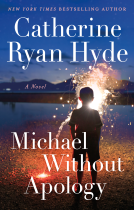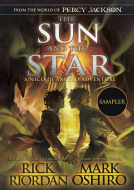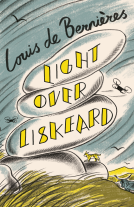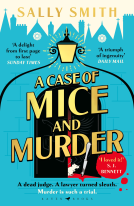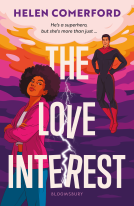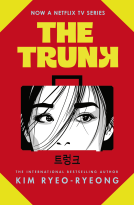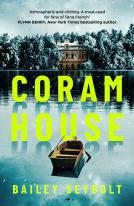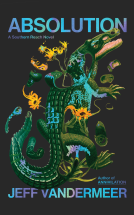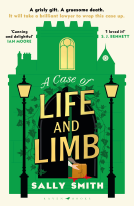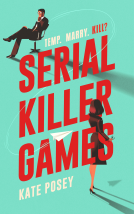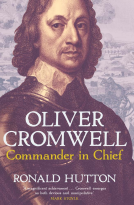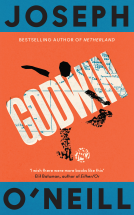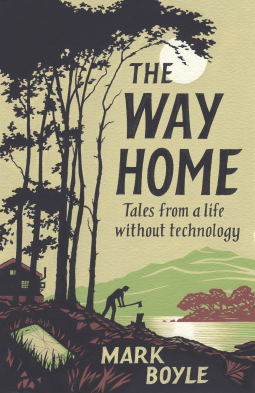
The Way Home
Tales from a Life Without Technology
by Mark Boyle
This title was previously available on NetGalley and is now archived.
Send NetGalley books directly to your Kindle or Kindle app
1
To read on a Kindle or Kindle app, please add kindle@netgalley.com as an approved email address to receive files in your Amazon account. Click here for step-by-step instructions.
2
Also find your Kindle email address within your Amazon account, and enter it here.
Pub Date 21 Jun 2019 | Archive Date 27 Mar 2019
Talking about this book? Use #TheWayHome #NetGalley. More hashtag tips!
Description
No running water, no car, no electricity or any of the things it powers: the internet, phone, washing machine, radio or light bulb. Just a wooden cabin, on a smallholding, by the edge of a stand of spruce.
In this honest and lyrical account of a remarkable life without modern technology, Mark Boyle, author of THE MONEYLESS MAN, explores the hard won joys of building a home with his bare hands, learning to make fire, collecting water from the stream, foraging and fishing.
What he finds is an elemental life, one governed by the rhythms of the sun and seasons, where life and death dance in a primal landscape of blood, wood, muck, water, and fire – much the same life we have lived for most of our time on earth. Revisiting it brings a deep insight into what it means to be human at a time when the boundaries between man and machine are blurring.
Advance Praise
‘There is more honesty and integrity in a single page of Mark Boyle’s writing than in the collected works of many of today’s nature writers or environmentalists. The Way Home paints a picture not only of how broken our culture has become, but of how to begin building a new one. It demands to be read – and then lived by.’ Paul Kingsnorth, author of Real England and Confessions of a Recovering Environmentalist
‘Illustrates beautifully that giving up many of the things in life that we treat as indispensable may actually be less of a sacrifice than a liberation.’ Neil Ansell, author of Deep Country
Available Editions
| EDITION | Other Format |
| ISBN | 9781786076007 |
| PRICE | CA$37.50 (CAD) |
| PAGES | 304 |
Featured Reviews
 Melanie L, Reviewer
Melanie L, Reviewer
The Way Home will be published in hardback in April 2019. A fascinating memoir by "moneyless man" Mark Boyle, recounting his life without modern technology on a smallholding in Ireland. Definitely a conversation starter.
 david s, Media/Journalist
david s, Media/Journalist
Boyle's latest chronicle describes how he gave up almost all modern conveniences to live as simply as he could in a remote part of Ireland. He writes well -- especially considering that he just uses pencil and paper -- and is blessed with a rugged determination and a mad set of skills to feed himself and keep himself clean and healthy and warm. While this isn't a lifestyle that most of us would feel comfortable with, it is an impressive achievement and this tale can speak to all of us that want to reduce some of the complexities of the modern era. You'll want to dive deeper into some of his earlier columns and books that talk about his transition towards his way home, and perhaps we will all find our own ways home too.
 Librarian 431790
Librarian 431790
A fascinating and interesting book. I liked the style of writing and I think this book is full of food for thought.
Highly recommended!
Many thanks to Oneworld Publications and Netgalley for this ARC
I would love to do what Mark has done, on a temporary basis. I've always wanted to be technology free living off the grid. The problem is that I don't have any survival skills. I admire the author for living so primitive. This book is a lesson to everyone. It's a great read with a lot information to take in and think about. I recommend for anyone who wants to more closely examine technology and it's effects on our lives. Thanks to NetGalley for an arc in exchange for an honest review.
 Reviewer 392033
Reviewer 392033
As a fellow Irish native, Mark Boyle's way of thinking and living appeal to me greatly; I admired him a lot when he essentially gave up on the money economy and this book was a brilliant look into the extreme end of zero waste. Eschewing electricity, fossil fuels and technology, Mark and his girlfriend build what they need on a slice of land in western Ireland and commit to a life without the badgering of mass human progression. Learning to farm, fish and build from his smallholding, Boyle considers the world from an ecological point of view, persistently operating to do no harm and participating fully in the food cycle as he needs to after years of being both veggie and vegan to some extent. His story is refreshing and though his commitment seems extreme, he makes clear that the reality facing us is that his actions, though radical now, may be necessary to ensure the future survival of us.
I thoroughly enjoyed reading this book. Every time I picked it up it was like stepping out of the fast lane and being reminded that there is another way to live.
I started noticing the birds singing more, slowed down my activity and even made a new friend because I slowed down enough to speak to a stranger, share a slow walk and conversation with them (they were elderly and used a walker). It was a life affirming experience, directly as a result of reading this book.
 Alexander G, Reviewer
Alexander G, Reviewer
You might disagree with some of his key thinking. Particular the over romanticism of non tech living. But its a lovely read and thought provoking.
 Melanie M, Reviewer
Melanie M, Reviewer
Mark Boyle may be known to you as the Moneyless Man; after the financial crash in 2008, he decided to live for a year without exchanging anything for money. Not being paid, nor paying money for anything either. I vaguely followed his journey back then.
A couple of years ago, Mark Boyle decided he would give up technology and live a “simple life” on his smallholding in Ireland. Not just giving up his phone and social media, but all technology. No electricity, no landline phone. An interesting premise for any book and so I was keen to get an ARC via Netgalley, which I then very ironically read on my ereader…
Naturally, a book like this invites people to feel attacked, anyone who ever steps out of the norm and declares they want a different life has the potential to make people who don’t do the same feel as if judgement is passed on their life and that someone like Mark Boyle is looking down on them. Yet, I hope people go into this book not thinking that or reacting that way, because I fear they may miss a wonderful opportunity to be inspired. I found it both an enlightning reading experience as well as a good moment to look at myself and see where I could do more. No plans to move to a smallholding at present, but we can all do better and must all do better if we want to save the planet (and us, because let’s face it if we are gone, the planet is going to be just fine).
I think what immediately drew me in was how he approached it: No dogma, just exploration. The best things are started like this in my opinion. Too many rules set you up for failure or as Mark Boyle puts it:
On top of that, those years taught me that rules have a tendency to set your life up as a game to win, a challenge to overcome, creating kind of black and white scenarios our society leans towards.
The book is written like a diary and yes, without a computer, putting pen to paper. Boyle reflects a lot on this slower writing process, but after some time he feels that this new pace improves his writing. I cannot judge this as I have not read any of his other books, but I can see how “thinking twice, writing once” makes a nice change from the write a rubbish first draft and then start writing the actual book preaching, we have come to accept and although I know this to be true for myself, I also know that a lot of writers have written in a more deliberate way.
The year was not plain sailing that’s for sure. He missed calling his parents and hearing their voice. Jobs that a machine could have done in minutes took hours or days. He went from being vegan to being a meat and fish eater again and that required quite some soul searching.
He started this journey with his partner Kirsty and how that ends, you will have to find out for yourself. Kirsty, or rather the lack of her in the narrative of his reflections, is the one thing that I would found missing in this book. As a woman, I found it interesting (and alarming) how easily the couple slipped into established gender roles: Mark out with this axe creating his environment, tending to his land, shaping his universe, while at home in the self-built hut, Kirsty tends to the hearth. He does comment on it once, briefly, but this was an aspect that I would have liked him to explore more. Did he really not see this more, did this really not bother him? The thought that a return to a simpler life would render women consigned back into the kitchen, really gave me something to think about and Kirsty’s absence in the narrative for long stretches, made me worried that this ideal he was creating would ultimately lead to another silencing of women, women absent from the overall narrative: seen but not heard. There was so much I wanted to know about this journey from Kirsty, that part of me hopes that she will write her side of it at some point.
The lack of rules he set himself meant that he was making it up as he went along and I think that was the charm of the book. He is often conflicted in his choices. Often unhappy with the compromise he has to make. Yet, I think, this is what stopped this book from becoming too preachy. Yes, Boyle judges society, but he also does not claim he has got it all figured out.
It is rather hard work: There is no smooth road into the future: but we go round, or scramble over the obstacles. We’ve got to live, no matter how many skies have fallen.
As for me and my reaction: Boyle has inspired me. Maybe not in the way he intended. We are not going to move to a smallholding in Ireland, no returning to the husband’s roots. We lack the skills. I lack the health. But we shall push forward with the changes we have made, the way we feel we can make a difference. And yes, there is so much more we can do and I think I needed that kick in the behind.
I found this an eye opening read. I’m sure a lot of us think we would be better off without technology & want to cut back on our social media use, but this is taking it to another level - not only social media, but gas/electric & most modern technologies that we would class as everyday comforts (or just take for granted without thinking about them). Mark builds a new cabin/house on his smallholding in rural Ireland, and this book charts his life & how he gets on with this completely new way of life.
It’s an inspirational read, and although I doubt many of us would go to these lengths, it does make you think about the important things in life. I thoroughly enjoyed this & I’m definitely going to search out his first book now.
Thank you to NetGalley for the ARC of this book in exchange for an honest review.
 Tara O, Reviewer
Tara O, Reviewer
I think we all know that we spend too much time these days glued to our devices and consuming a constant stream of (bad) news, social media and mindless videos, but a book like this really makes you think about it. It’s the account of the writer’s decision to cut ties with the modern world. He moves to a small holding in a remote part of Ireland and lives without any modern technology - not only no phone, computer or internet, but no electricity, nothing more advanced than what he can make himself with simple tools. He wrote this book in pencil by candlelight. I loved it because it didn’t come across as at all preachy - it’s a Walden for the 21st century, a gentle reminder that other things matter, and that we do have other choices. The book is a series of stories and realistations rather than following a particular narrative, but it feels like an honest glimpse into a very different way of life.
The irony of the fact that I read it on my e-reader is not lost on me. Still. I highly recommend it.
Thanks to Net Galley and the publisher for this ARC.
Readers who liked this book also liked:
Rick Riordan; Mark Oshiro
Children's Fiction, LGBTQIA, Teens & YA
Keith Martin; Konstantinos Mersinas; Guido Schmitz; Jassim Happa
Business, Leadership, Finance, Computers & Technology, Reference
